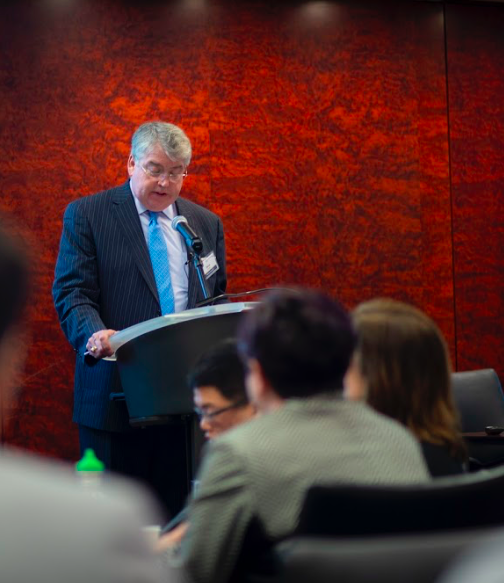- By Bridget Williams, AEG Fellow
Debate was lively at the Q1 Advanced Energy Group breakfast in Chicago, IL on March 14th. It was no easy task defining the most pressing resiliency issue in Chicago related to microgrids and infrastructure challenges.
HG Chissell, Advanced Energy Group
HG Chissell, Founder and CEO of Advanced Energy Group, began by reminding stakeholders that Chicago, perhaps not considered the most “at risk” city in terms of climate change, has its share of climate-related threats to human health and well-being. For instance, in 1995, over 700 Chicagoland area residents perished in a catastrophic heatwave. No extreme heat wave since has resulted in such a loss of human life, thanks in large part to the preventative steps taken by the City of Chicago since then. HG asked attendees to consider how we can proactively pay for resilience with this example in mind.
Elizabeth Kocs, UIC, meeting with members of the Q4 Task Force after the Q1 Breakfast
HG then turned the meeting over to Elizabeth Kocs, the CAE Q4 Mobility & Transportation Task Force leader, for an update on their 12-month project. Their critical action is to develop and launch a platform pilot at UIC to encourage sustainable multi-modal transportation to, from, and within the campus for people and cargo. The UIC Task Force on Mobility was created to address the Q4 problem statement: How do we create integrated platforms that drive equitable outcomes and democratize access to needed multi-modal EV adoption, while prioritizing trucks to best reduce harmful emissions? By Q1 2019, the task force had conducted stakeholder outreach, started planning to decrease vehicle parking on campus, and increased awareness. The task force welcomes support from AEG stakeholders; email Elizabeth Kocs at ekocs@uic.edu if you are interested in offering expertise, task force support, or other resources. Elizabeth will present a refined scope at the Q2 breakfast.
Stephen Humes, Holland & Knight
Stephen Humes, Partner at Holland & Knight, focused the discussion back on Q1 by presenting an example of climate financing with the islands of Puerto Rico and Hawaii, where electric resiliency funding and credit risk vary. He identified the challenge of reimagining the utility model: who owns and pays for microgrids, and should utilities earn a return on investment for them?
AEG’s discussion leaders then took the floor to identify challenges related to Resiliency, Critical Infrastructure, and Microgrids that need near-term solutions and require collaboration.
Brien Sheahan, Illinois Commerce Commission
Stefan Schaffer, Chief Resiliency Officer for the City of Chicago, was unable to attend due to illness, but a review of his presentation showcased his argument that the main financial barrier in Chicago is a lack of clear funding for green infrastructure projects. The three pillars of strong communities, robust infrastructure, and prepared communities are not separate from the question of energy efficiency and system resiliency.
Jake Edie, S&C Electric
Brien Sheahan, President and CEO, Illinois Commerce Commission, noted that Chicago built the microgram, and that the Ameren U of I Microgrid today is the most advanced in North America and the first to operate at utility-scale voltages. The impact of climate change and need for quality quality systems that also present against cyber threats require modern systems to operate in isolation and be more resilient. The problem is that utilities are hesitant to invest in new technologies, and this resistance to innovation (reflecting the conservative nature of utilities) impedes development. He offered the idea of a regulatory sandbox, a framework within which innovators can test technologies under regulatory supervision without a lengthy approval and funding process, which will expose regulators to the latest tech developments and encourage innovation.
Jim Kavicky, Argonne National Laboratory
Jake Edie, Manager of EPC Proposals at S&C Electric, suggested microgrids should be able to earn market revenues and be a rate-based asset. Technology, economics, and regulation need to come together to make change work. With a regulatory framework that is 30+ years old, microgrids will have a hard time scaling. Further, confusion around bundled and unbundled utility configurations inhibits market adoption. Jake urged that regulation still needs to change in order to create the breakthrough needed for greater adoption of microgrids.
Joyce Coffee, Climate Resilience Consulting
Jim Kavicky, Program Manager at Argonne National Laboratory, stressed that collaboration through exercises and drills helps us explore and develop answers to multi-faceted problems. Interdependent systems create deep complexity and risk. We need scenario development that helps us understand what to do “when things break.” Awareness, identification, and prioritization of competing cross-sector and community resilience objectives that threaten the operation of critical community assets, and thus endanger human life, is a critical problem requiring collaborative action.
Joyce Coffee, President of Climate Resilience Consulting, noted that if, “infrastructure is destiny, finance is God.” PG&E gave us the first example of climate bankruptcy; despite being proactive around their climate change risk, they were still ultimately overwhelmed by it. We have the ability to know what the avoided costs are and put that into cost-benefit analyses. Joyce argued the greatest problem is bankability: funding and financing energy security in the face of climate change risks. Many climate solutions are considered unbankable but acting now saves money later.
AEG Stakeholders then voted on the speaker whose challenge was most actionable within a 12-month timeframe.
Brien Sheahan’s winning problem statement was:
A problem related to Resiliency, Critical Infrastructure, and Microgrids that needs a near-term solution and requires collaboration is how to create a more constructive and flexible regulatory environment that enables innovation and learning.
Breakout groups then debated the best 12-month plan and, despite a very close race, one action plan was selected by the group:
Over the next year, a Q2 Task Force will develop a plan, presentable to the Governor, that allows microgrids to operate in the rate player and commercial sectors to stabilize energy rates, build strong neighborhoods, and prepare Chicagoland communities for the challenges of climate change.
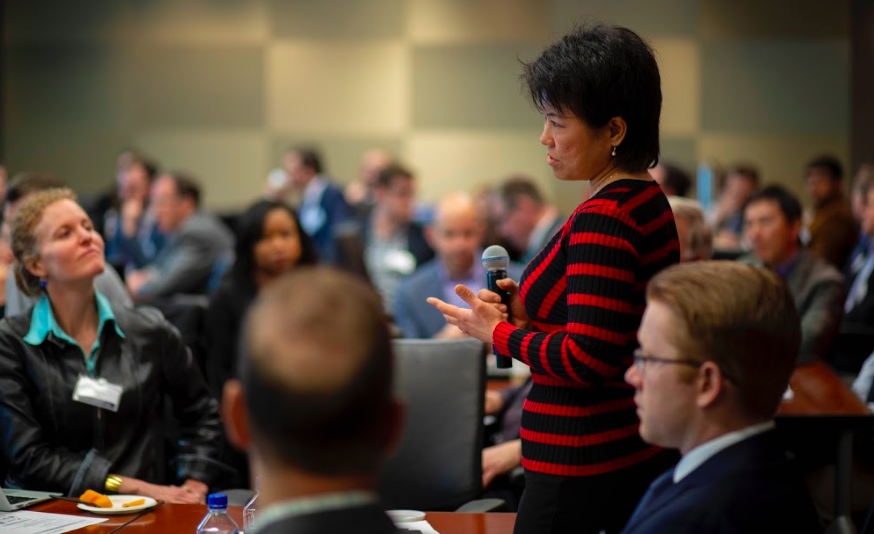
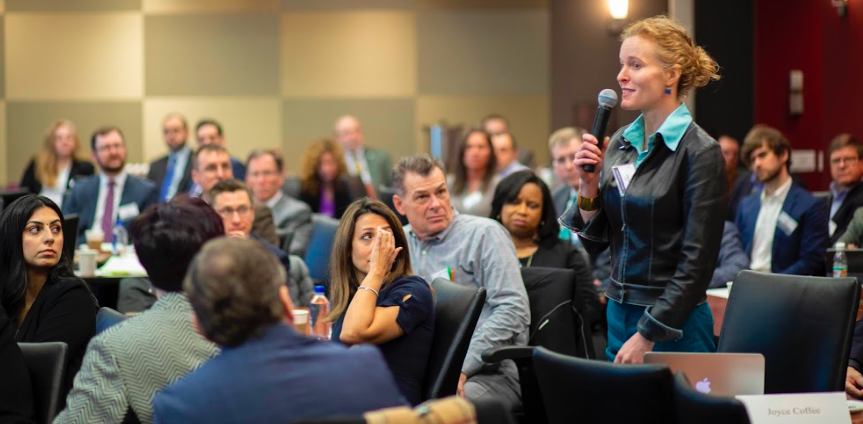
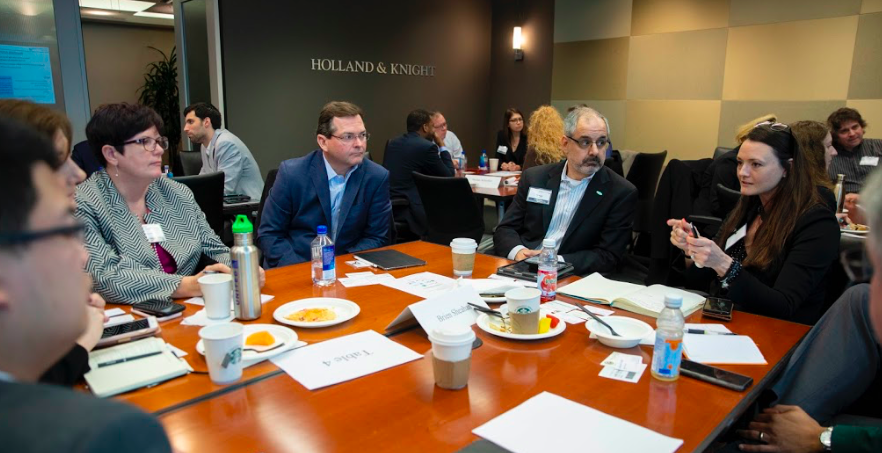
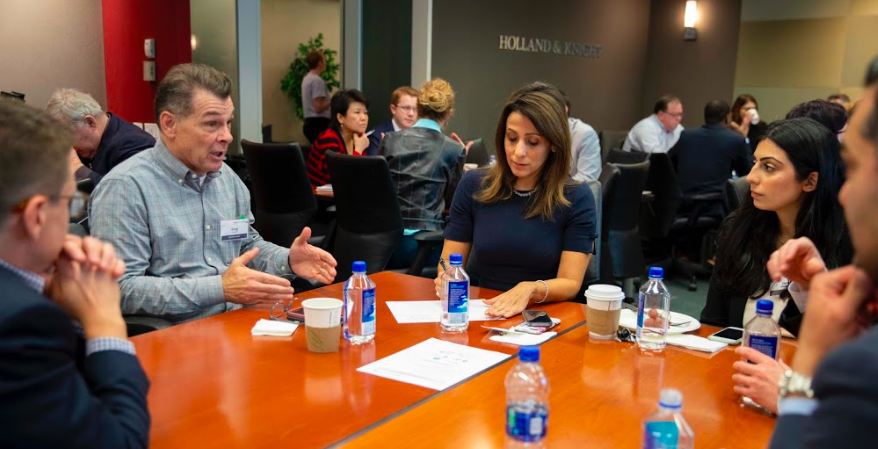
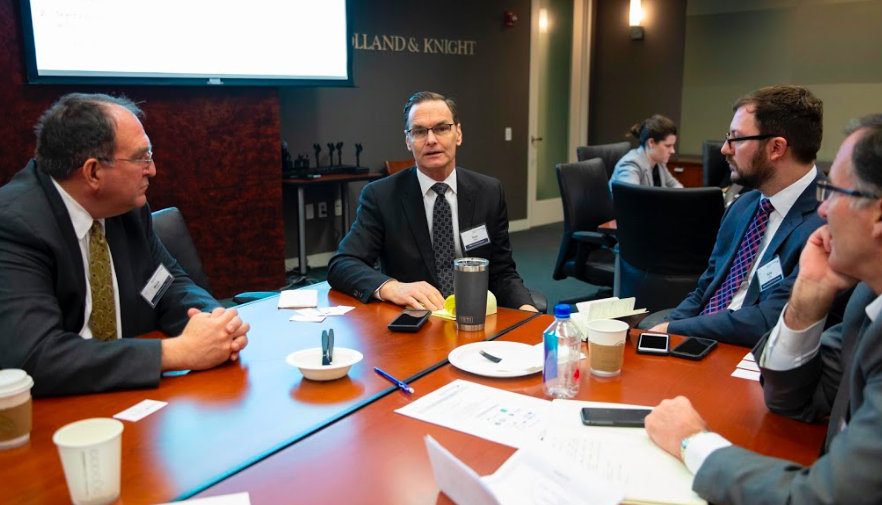
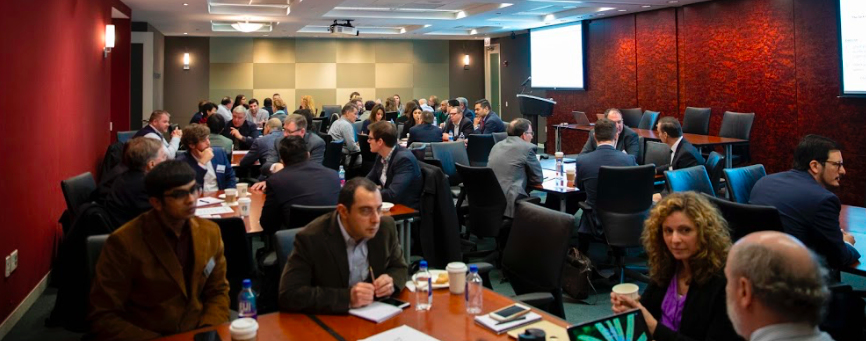
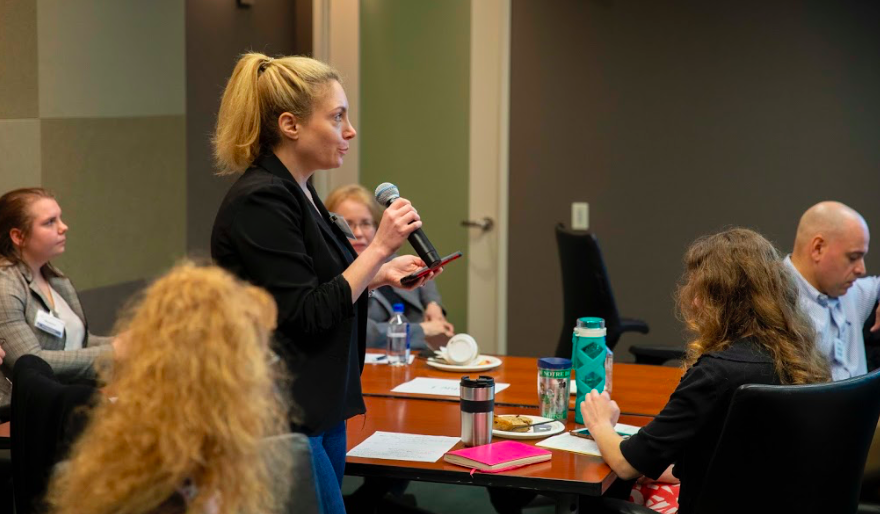
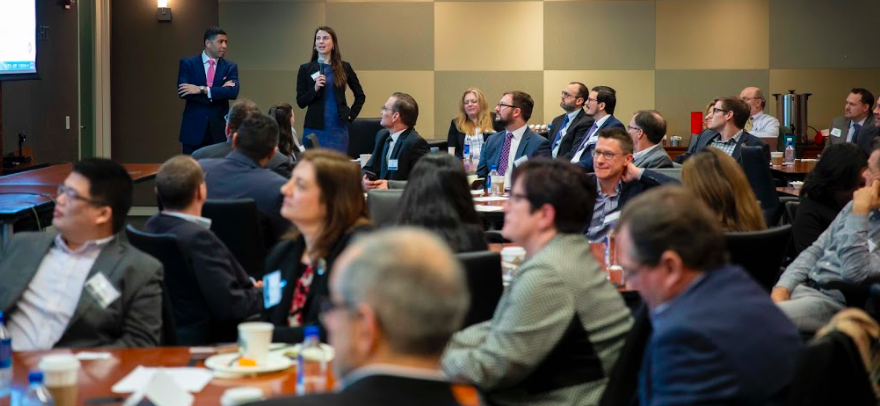
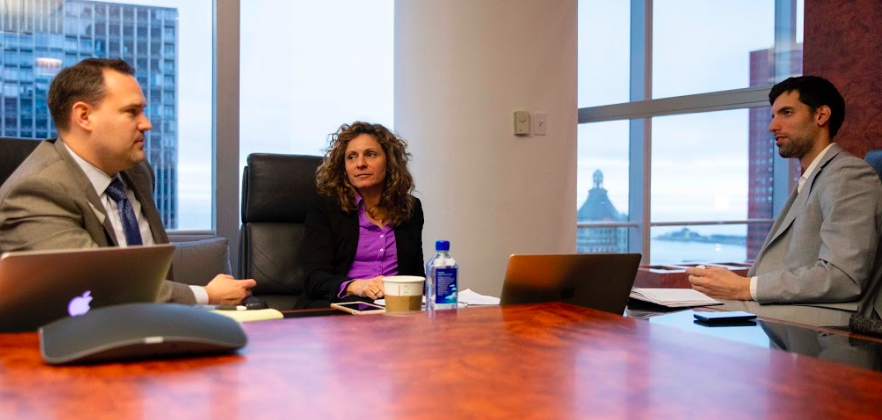
Join us at the Q2 stakeholder breakfast on Thursday, May 23, 2019 to hear updates from Q4 2018 and Q1 2019 task forces and discuss smart buildings and grid modernization.
Register now for Q2: Smart Buildings & Grid Modernization - May 23, 2019
Non-Member Registration Link: Register here.
(Members will receive a custom invitation.)
Advanced Energy Group is a stakeholder member-supported organization committed to developing and delivering advanced energy policies and solutions in key cities. Stakeholder sessions are by invitation only. For details of our programming please visit:
AEG Event Calendar | Podcasts | Videos | LinkedIn | Twitter



